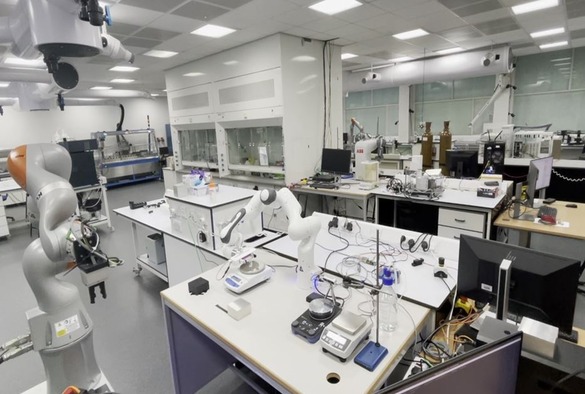Gabriella Pizzuto Awarded Royal Academy of Engineering Research Fellowship

Dr Gabriella Pizzuto, a newly-appointed lecturer in Robotics and Chemistry Automation, has recently been awarded a Royal Academy of Engineering Research Fellowship to build the next generation of robotic chemists. Dr Pizzuto found her passion for deploying robotic scientists in labs when she joined the University of Liverpool two years ago, as a senior research associate working on the ERC Synergy grant ADAM. As part of the Cooper group, she was exploring how learning-based methods could be used to address current limitations of traditional lab automation. During the early days of the project, it was evident that state-of-the-art automation methods would make it challenging to generalise to new material discovery experiments, while also hinder the possibility to scale up to more longer-term workflows. By exploring data-driven methods e.g. using deep reinforcement learning, robotic scientists such as the mobile robotic chemist that was pioneered in Liverpool could become more adaptable in real-world laboratories. Through this award, and together with her new group, Dr Pizzuto will propose new methods at the intersection of machine learning and robotics towards accelerating laboratory skill acquisition, making new tasks feasible, and adding failure recovery mechanisms to the generalised skills.
Dr Pizzuto completed her PhD in cognitive robotics at the University of Manchester in 2020 through the Marie Sklodowska-Curie Actions training programme. She was also a visiting scholar at the University of Edinburgh and Italian Institute of Technology. She then went on to work as a postdoctoral research associate at the Edinburgh Centre for Robotics, prior to joining the University of Liverpool.
Her project “Upskilling robotic scientists for long-term laboratory workflows” was 1 out of 10 proposals that were selected for funding. These research fellowships are aimed at early-career researchers to support them towards becoming internationally-recognised research leaders in engineering, by providing funding for young researchers to pursue an ambitious programme of engineering research and impact and build their own team.
Her research, spanning across the Computer Science and Chemistry departments, has been about robot skill acquisition, non-invasive sample understanding through visual methods and exploring approaches towards failure understanding and recovery.